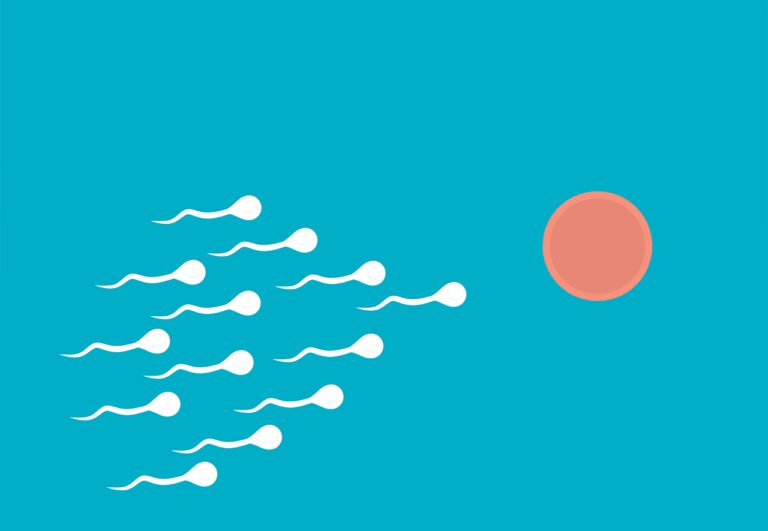Sperm cells can survive in water and other liquid environments, but they will not fertilize an egg unless the semen is released in the female reproductive tract. Understanding what affects sperm survival can help men optimize their fertility.
Men may also choose to freeze their sperm, which will keep them alive for years at a stable temperature of -196 degC. To achieve conception, sperm must be released during a woman’s fertile window.
Temperature
Sperm survive a long time outside the body, but their lifespan is dependent on temperature, humidity, surfaces, and more. Understanding how long sperm can live outside the body is essential for couples who are trying to conceive.
Each time a man ejaculates, about 200 million sperm cells leave his body in a fluid called seminal plasma. This fluid protects and nourishes the sperm as they move towards an egg. Sperm are most likely to survive outside the body for an hour if they are ejaculated into condoms, which provide a more humid environment than other materials like showers or swimming pools.
In general, sperm can survive in water or other liquid environments for up to five days, but they must be in the right temperature range for them to reach and fertilize an egg. The quality of sperm, as well as intercourse timing relative to ovulation, also impacts the chances of conception.
Another important factor in sperm survival is the surface on which they are released. They can survive longer on non-porous surfaces such as plastic or ceramic, but they will die within 15 to 30 minutes on fabric. This is because sperm will dry out and dehydrate much faster on porous surfaces. In addition, the presence of certain bacteria, including sexually transmitted infections such as chlamydia and gonorrhea, can damage and dehydrate sperm.
Humidity
During the process of fertilizing an egg, sperm need to stay moist and healthy. If sperm are released into the air and dry up, they can die. This is why it is best to keep semen away from dry surfaces such as toilet seats or towels. Similarly, if sperm are left in hot water or a bath they will have less of a chance to survive.
Luckily, the cervical mucus (which helps sperm survive and move towards the egg) changes in consistency around ovulation. This gives sperm a better chance of surviving, which is why it is important to time sexual activity during this period.
When a man ejaculates up to 200 million little swimmers are combined with seminal fluid to form semen. This liquid contains 80% water and only 5% sperm cells. Unfortunately, these tiny cells are only 0.002 inches wide. This means that they need to make a treacherous journey after being ejaculated, through the cervix and fallopian tubes, and into the egg.
While sperm do have the ability to survive on some dry surfaces, the length of time they can do this varies. Typically, sperm will die within an hour of being exposed to air and other dry surfaces. It is possible for sperm to survive longer, however, if they are frozen before drying up. This can be done through a specialist freezing technique called medical cryopreservation, which is only available at clinics that specialise in fertility.
Surfaces
Sperm cells are delicate, so the surfaces that they encounter can have an impact on their lifespan. For example, sperm are able to survive on alkaline surfaces and warm environments, but they die quickly in acidic or cold environments. Additionally, sperm are more likely to survive on lubricated surfaces than dry ones.
After a man gets sexually aroused, millions of sperm cells combine with seminal fluid to create semen. These swimmers are then released by the vas deferens and sent down the urethra for ejaculation.
If the conditions are right, sperm can survive in semen for up to five days. This is because cervical mucus thins and becomes clear during ovulation, creating a good environment for sperm and increasing that ‘fertile window’. In addition, sperm cells can also survive in the cervical ‘crypts,’ which are small channels that provide temporary storage for sperm.
Unfortunately, not all sperm make it through this process to reach the egg and cause conception. In fact, only 1% of sperm reach the uterus after ejaculation, and most die within an hour. This highlights the importance of ensuring that sperm is protected and moisturised during intercourse, and of having a good understanding of ovulation and menstrual cycles if couples are trying to conceive. This is why using long-acting reversible contraceptives (LARCs) is a smart choice for couples who are trying to conceive.
Chemicals
Sperm can survive on a non-porous surface for only a few minutes before they begin to dry out and die. This is why it’s important to use safe lubricants while having penetrative sex, as they provide a much better environment for sperm. It’s also important to avoid using cleaning products that contain chemicals, as they can kill sperm cells.
Another factor that affects sperm survival is their ability to absorb moisture. This is why they’re able to live longer inside the female reproductive tract, where they have access to plenty of moisture. Sperm cells can also survive longer in warm environments than they can in cold ones.
However, even inside the vagina, sperm is still vulnerable to other environmental factors. They can be damaged by a variety of substances, including some cleaning products, air, and certain bacteria. This is why it’s important to practice proper hygiene and use birth control methods such as intrauterine devices or implants.
The good news is that sperm that has been collected by a doctor and frozen can live indefinitely under the right conditions. In a 2019 study published in Fertility and Sterility, researchers analyzed 119,558 semen samples that were collected from young men and then cryogenically stored for up to 15 years. While the sperm count of these samples did decrease over time, the results still indicated that long-term freezing does not significantly damage sperm viability.
See Also:



